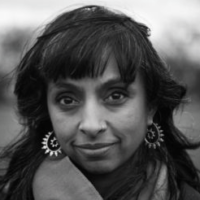Knowledge, skills and perspectives to challenge oppression and create spaces for empowered inclusion
This training will help you to learn the know-how of building more inclusive and empowering environments for activism and social change work. We will share tools and practices that aim into reducing discrimination based on race, gender, psychosexual orientation, economic status, disability, age, ethnicity or religion.
Systems of oppression often sustain themselves when we are unable to acknowledge and work well with the power dynamics, privileges and mechanisms of discrimination that exist in our groups, communities and societies. In anti-oppression training we carefully unravel those structures, gradually building a safe ground that can support us to explore these challenging themes step by step. Although the training content and process will address a wide range of discrimination and oppression structures, the main emphasis will be on how we can work with the dynamics that exist in smaller groups.
Applying foundational knowledge, frameworks and concepts used in anti-oppression work, participants will be invited to explore ways to deal with discrimination and oppression at the individual, organizational and systemic levels. Part of this work will be connected to identifying interdependence and interconnectedness through the lens of the intersectionality of struggles, learning how discrimination often intersects in complex ways (e.g. gender – race – – age – economic status).
We will encourage participants to step out beyond shaming and blaming strategies, and to reflect on the personal capacities and boundaries that grow out of the unique experience of our own conditioning. The focus will be on identifying ways of empowering people with experience of oppression in order to be able to build more sustainable social movements, as well as reflecting on the links between anti-oppression approach and solidarity practices.
Like all the other Ulex courses, this one will be held in the rural setting of the pre-Pyrenean mountains, enabling us to integrate some nature connection and awareness practices, working with body and mind. Those practices will help us to be more present in our training experience as well as providing the inspiration to look at our activism in a more holistic way.
The three facilitators will bring different approaches to anti-oppression work, coming from diverse cultural, activist and organisational backgrounds. Read more about them below.
In the solidarity economy:
(See details of our approach to radical economics here)
Contact us
to apply

Location:
Kyle Sawyer (they/he) is an anti-oppression facilitator and educator specializing in working with individuals and organizations on how to turn privilege into change. He is a trans, queer, mixed-race, white-passing individual. With over a decade of experience Kyle founded Building Allies in 2013 and developed the term Active-Ally, someone who witnesses injustice and responds to it in any situation. Kyle has worked with teachers, nonprofit organizations, students, therapists, social workers, community members, family members, and many others on learning how to be Active-Allies through an intersectional lens.

Location:
Sheila has been involved in activism and campaigning for social change for about a decade, organising and facilitating with grassroots groups and NGOs, primarily in the UK climate movement. In the lead up to COP21, in 2015, she was part of forming a European network mobilising for grassroots action on climate justice. In more recent years she has been more focussed on developing anti-oppression training, to support the need for greater intersectional thinking in all movements in order to not recreate systemic racism and social inequality. After a year working in the Ulex core team, Sheila is now leading a project to build capacity to support training for BIPoC activists, and to develop a Ulex training programme exclusively for BIPoC participants.

Location:
An Maeyens (she/her) is a facilitator and trainer with over two decades of experience in grassroots movements. She specialises in creative, inclusive agenda design and brings deep expertise on group culture, power dynamics, and transformative learning. Starting of in the anti-globalisation movement she has trained thousands in civil disobedience, supported international coalitions, and developed multilingual training programmes and toolkits. Her work spans movements, cultures, and countries, guided by a commitment to care, accessibility, and leaderful organising.

Location:
Ari’s activism began in 2002, at age 16, as a Bosnian refugee in Canada, where they founded and coordinated a group for LGBTIQ high school students and allies. They were a co-founder and leader at kolekTIRV in Croatia and Trans Network Balkan, involved in community organizing, advocacy, program management, team coordination, capacity building, education, media work, campaigns, events, fundraising, etc. In 2024, they joined the Supervisory Board of the Croatian Trade Union Collective of United Precarious Workers and Activists (SKUPA).
Beyond the Balkan region, Ari served as a Board member at Transgender Europe (TGEU), where they held roles as Secretary, Treasurer, and later Co-chair. They have also been a trainer with the Center for Artistic Activism and served on the Advisory Committee and since 2022 as a Community Care Facilitator at FRIDA — The Young Feminist Fund. Since 2024 they are the Operations Manager at Global Philanthropy Project.

Location:
Sergio (all pronouns) was born in Romania and migrated to Germany in the early 2010s. In the past, he was a social worker with homeless people and a social consultant for Eastern European migrants for various organisations. Trained as a filmmaker, he spent two years making a documentary about the ‘civic reawakening’ in Romania and the waves of protest it brought with it. In connection to this, Sergio is currently co-steering the development of an online open-source participative knowledge production platform on activism in Romania. Over the past nine years, Sergiu has offered his skills to various journalists, grassroots collectives and campaigns, mostly working within the labour rights, climate justice, international solidarity and anti-authoritarian movements in Germany and Romania. Nonetheless, his biggest focus since 2020 has been his work as an organiser with the anarcho-syndicalist Free Workers Union, where he focuses mostly on organising Romanian migrant workers on construction sites, in factories and in the agricultural field.

Location:
Linzy Na Nakorn is a movement director, politicised somatics practitioner, community organiser and facilitator. For the past decade she has been facilitating movement, body work and creating theatre, dance and participatory performance that advocates for and organises with communities in pursuit of housing, disability and racial justice. Her movement practice focuses on trauma-informed approaches to building resilience, capacity and joy via way of the body for personal, interpersonal and community sustainability. Linzy was a Co-Director of The Big Ride for Palestine in partnership with The Gaza Sunbirds, Native Woman Ride and Middle East Children’s Alliance; using cycling as a tool for mobilising active solidarity and in support of campaigning for the rights and self-determination of the Palestinian people. Linzy is part of a UK network of activists and artists advocating for Radical Care – supporting organisations, researchers and institutions to work towards system change in societal approaches to labour, leadership and access.

Location:
Jeroen (he/him pronouns) has been involved in grassroots social movements for more than two decades now, starting back when he was fifteen. Throughout the years the fights for “climate justice” and “migrant justice” have been consistently on top of the list of struggles that make his heart beat faster. A key transformative moment for Jeroen was reading Paulo Freire’s Pedagogy of the Oppressed. Freire’s revolutionary pedagogy gave him a language to support the creation of emancipatory learning environments, rooted in a desire for collective liberation. Jeroen has also been exploring in depth Boal’s Theatre of the Oppressed and Joanna Macy’s The Work That Reconnects among other methodologies to build his trainer’s toolkit. Inspired by the liberatory possibilities of these traditions, he started an organization with a friend, LABO vzw, based in Belgium, where he has worked as a trainer and campaigner between 2013 and 2023.

Location:
Ella brings more than 10 years’ external experience working with not for profit and community based organisations across diverse themes including: advocacy for migrant communities; local community engagement in national policy making; and structural relationships between poverty and disenfranchisement, and education and poverty. Immersed in critical theory in her early 20s she brings a holistic and questioning approach, and is passionate about systemic solutions that centre relationship and interconnection between ecology and society. A long standing member of the collective, Ella has been part of the core team since the inception of the Ulex Project. Her work bridges facilitation, developing project partnerships, governance, strategy, operations, and project and programme evaluation. She has developed and overseen more than 70 partnerships with a range of different actors across European social movements.
Ulex: Latin (argelaga Catalan, gorse English) noun:
1. A thorny-evergreen flowering shrub, with a high capacity for regeneration and resilience. Its seedpods open in contact with fire and it reshoots from charred stumps. A successionary plant that grows well under challenging conditions. It improves soil fertility through nitrogen fixing, preparing the way for renewed biodiversity.
2. A traditional choice for igniting fires. Burns hot and bright.
3. A networked project adding nutrition and fertility to European social movements through training and capacity building. It kindles the realisation of social justice, ecological intelligence, and cognitive vitality.